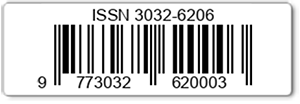Impression Management of Companies During Covid-19 Pandemic
Keywords:
Attribution bias, Covid-19, Impression management, NVivoAbstract
The purpose of this study is to investigate the impression management behaviour in public companies in Indonesia. This study uses management reports in the company's annual report as data sources to observe impression management behaviour. The analysis is conducted using NVivo software. Our study confirms that most CEOs blame on factors outside themselves when their companies are hit by Covid-19 triggered crisis. They put the blame on, i.e. Covid-19, industry, and Indonesian. All these three factors equal portion in the annual reports. Our study has some limitations. First, we only analyse a small group of companies in Indonesia. Second, we limit our observation to 2020 when the crisis first hit the world. Because nobody has experienced this before so the wording may be uniform across the companies. Future research can analyse latter years, i.e. when some companies have built their resilience strategies amid the on-going crisis.
References
Ahmed Haji, A., & Hossain, D. M. (2016). Exploring the implications of integrated reporting on organisational reporting practice. Qualitative Research in Accounting & Management, 13(4), 415–444. https://doi.org/10.1108/QRAM-07-2015-0065
Badan Pusat Statistik. (2021). Berita Resmi Statistik. https://www.bps.go.id/pressrelease/2021/02/05/1811/ekonomi-indonesia-2020-turun-sebesar-2-07-persen--c-to-c-.html
Badan Pusat Statistik. (2022). Berita Resmi Statistik. https://www.bps.go.id/pressrelease/2022/02/07/1911/ekonomi-indonesia-triwulan-iv-2021-tumbuh-5-02-persen--y-on-y-.html
Caillouet, R. (2022). A Quest for Legitimacy: Impression Management Strategies Used by an Organization in Crisis. Louisiana State University Libraries. https://doi.org/10.31390/gradschool_disstheses.5110
De Vito, A., & Gómez, J. P. (2020). Estimating the COVID-19 cash crunch: Global evidence and policy. Journal of Accounting and Public Policy, 39(2), 1–14. https://doi.org/10.1016/j.jaccpubpol.2020.106741
Hooghiemstra, R. (2000). Corporate Communication and Impression Management – New Perspectives Why Companies Engage in Corporate Social Reporting. Journal of Business Ethics, 27(1), 55–68. https://doi.org/10.1023/A:1006400707757
Lazkano, L., & Beraza, A. (2019). Social Accounting for Sustainability: A Study in the Social Economy. In Sustainability (Vol. 11, Issue 24). https://doi.org/10.3390/su11246894
Leary, M. R., & Kowalski, R. M. (1990). Impression management: A literature review and two-component model. Psychological Bulletin, 107, 34–47.
Lippo Karawaci. (2020). Laporan Tahunan 2019.
Lippo Karawaci. (2021). Annual Report 2020.
Merkl-Davies, D. ., Brennan, N. M., & Mcleay, S. . (2011). Impression management and retrospective sense-making in corporate narratives: A social psychology perspective. Accounting Auditing & Accountability Journal, 24, 315–344. https://doi.org/http://dx.doi.org/10.1108/09513571111124036
Moreno, A., & Jones, M. J. (2022). Impression management in corporate annual reports during the global financial crisis. In European Management Journal (Vol. 40, Issue 4, pp. 503–517). Elsevier BV. https://doi.org/10.1016/j.emj.2021.08.007
Rahman, S. (2012). Impression Management Motivations, Strategies and Disclosure Credibility of Corporate Narratives. In Journal of Management Research (Vol. 4, Issue 3). Macrothink Institute, Inc. https://doi.org/10.5296/jmr.v4i3.1576
Sandberg, M., & Holmlund, M. (2015). Impression Management Tactics in Sustainability Reporting. Social Responsibility Journal, 11, 677–689. https://doi.org/10.1108/SRJ-12-2013-0152
Schlenker, B. R. (1980). Impression management : the self-concept, social identity, and interpersonal relations. Brooks/Cole Pub. Co.
Shmerling, R. H. (2022). Is the COVID-19 pandemic over, or not? - Harvard Health. Harvard Health Publishing. https://www.health.harvard.edu/blog/is-the-covid-19-pandemic-over-or-not-202210262839
Staw, B. M., McKechnie, P. I., & Puffer, S. M. (1983). The Justification of Organizational Performance. Administrative Science Quarterly, 28(4), 582–600. https://doi.org/10.2307/2393010
Tedeschi, J. T., & Riess, M. (1981). Identities, the Phenomenal Self, and Laboratory Research. In J. T. Tedeschi (Ed.), Impression Management Theory and Social Psychological Research (pp. 1–22). Academic Press.
Tessarolo, I. F., Pagliarussi, M. S., & da Luz, A. T. M. (2010). The justification of organizational performance in annual report narratives. Brazilian Administration Review, 7(2), 198–212. https://doi.org/10.1590/S1807-76922010000200006
Tsang, E. W. K. (2002). Self-serving attributions in corporate annual reports: A replicated study. Journal of Management Studies, 39(1), 51–65. https://doi.org/10.1111/1467-6486.00282
Downloads
Published
Issue
Section
License
Copyright (c) 2024 Rahmat Febrianto, A.A. Gde Satia Utama, Erna Widiastuty (Author)

This work is licensed under a Creative Commons Attribution 4.0 International License.
Simposium Ilmiah Akuntansi under the terms of a Creative Commons Attribution 4.0 International License / CC BY 4.0 This license permits anyone to copy and redistribute this material in any form or format, compose, modify, and make derivative works of this material for any purpose, including commercial purposes, so long as they include credit to the Author of the original work.










